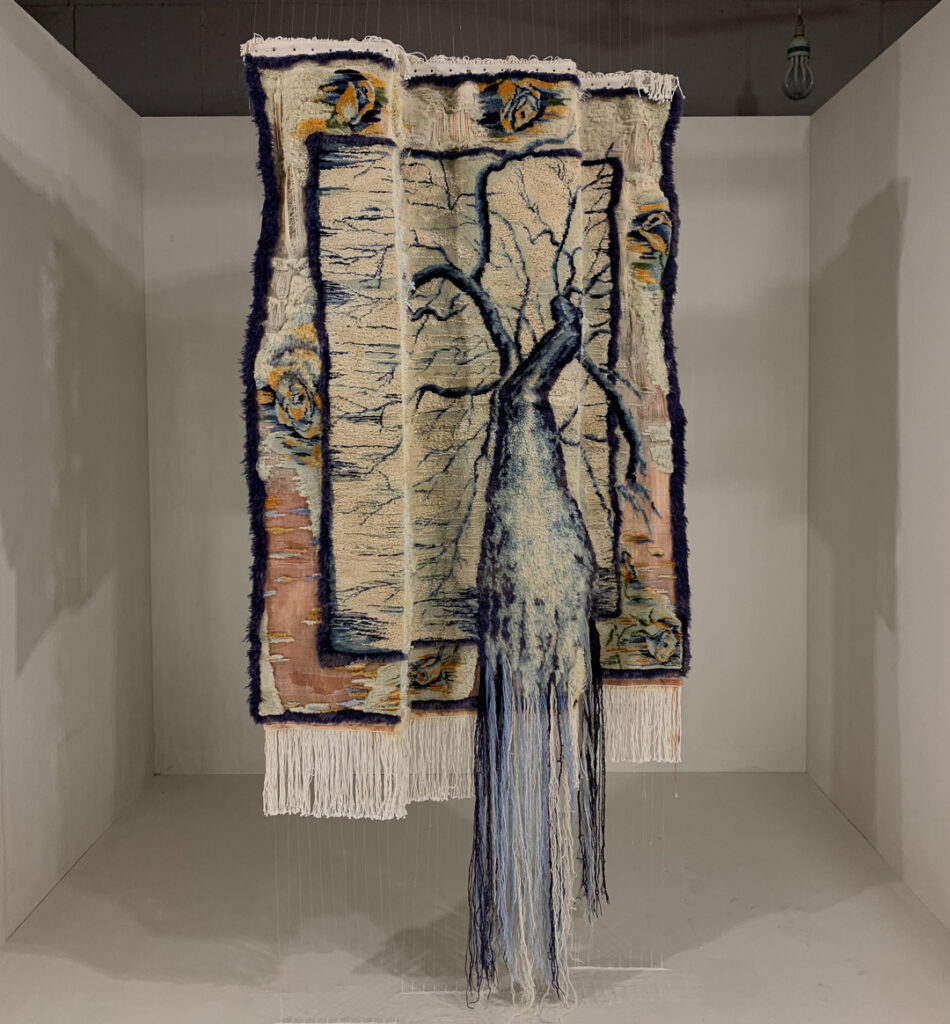
Hand-knotted Carpet Installation – Yusra Tanveer, Remnants of Grief, 2023, Imported Dyed Wool, Cotton Threads, Fishwire, Beading Elastic Wire, 4 x 5 feet
The inaugural winner of the Ruby Ghuznavi Prize is a textile artist from Karachi whose work expresses the fickle nature of memory.
Yusra Tanveer discovered textiles while studying fine art at 15 years of age. There was something magical about the craft:
In textiles, you really start from nothing. That fascinated me, the idea that, when you’re weaving, all you have to begin with is just threads and nothing else.
As well as visual expression, Yusra finds a creative outlet in writing. Her textile works normally begin with a textual piece. For a recent body of work, she began with a story about a deer:
I first started by writing a fictional story on a deer who loses her home, the jungle, to a wildfire. I talk about her grief and how she relives that memory of her lost home in dreams and nightmares. But over time, the details of her home no longer remain the same and she finds it difficult to revisit the memory the way that she used to. In the end, she accepts that memory is fictional, it scatters, and in that gradual process of forgetting is how she heals.
To realise this theme, she designed deliberately fragmented works that change meaning depending on the viewer’s perspective. There were obvious gaps, created with the use of transparent materials such as fishing lines.
- Yusra Tanveer, ‘of what remains…’, 2023, Imported Naturally Dyed Wool in Indigo, Cotton Threads, 14.5 x 12.5 inches
Along the way, Yusra discovered another layer of memory: the collective memory of weaving techniques in Karachi. It was largely a sad story.
in our culture, for example, we’ve always had hunting carpets or we have had Moghul carpets that always have a story to tell. So I decided to showcase my own journey of healing through a carpet. After the introduction of machine-make carpets, this craft has been very underappreciated.
She found very few clusters able to provide necessary processes in carpet weaving, such as hand washing. Production had declined with the introduction of cheaper machine-made carpets and fewer younger people interested in maintaining the craft. What Yusra found particularly depressing was the sense of helplessness: “Their answers were because they don’t have any of their skill. So they’re kind of just stuck in this craft”.
The weaving community in Karachi is predominantly male. Some were uncomfortable with her presence in the workshop, but Yusrah hopes to encourage other women to take up the craft.
Yusra invited the weavers to the exhibition of the works they helped make and was pleased with the pride they had in seeing this work on public display. They also featured in a documentary about the works.
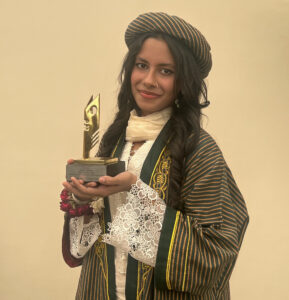 Yusra is very pleased about the prize. “It was such a huge honour for me to receive this award. Ruby Ghuznavi herself has done so much for the craft industry in our continent.”
Yusra is very pleased about the prize. “It was such a huge honour for me to receive this award. Ruby Ghuznavi herself has done so much for the craft industry in our continent.”
It is a wonderful testament to Ruby Ghuznavi to have her legacy honoured in the work of such a promising, creative and thoughtful craftsperson as Yusrah Tanveer. Yusrah hopes someday to exhibit her work outside Pakistan.
Follow @yusraveer and connect at linkedin.com/in/yusra-tanveer-a1330957/
Ruby Ghuznavi was a prominent Bangladeshi advocate of natural dyes and a founding member of the Bangladesh National Crafts Council. For more details of her inspiring biography, see the article below.




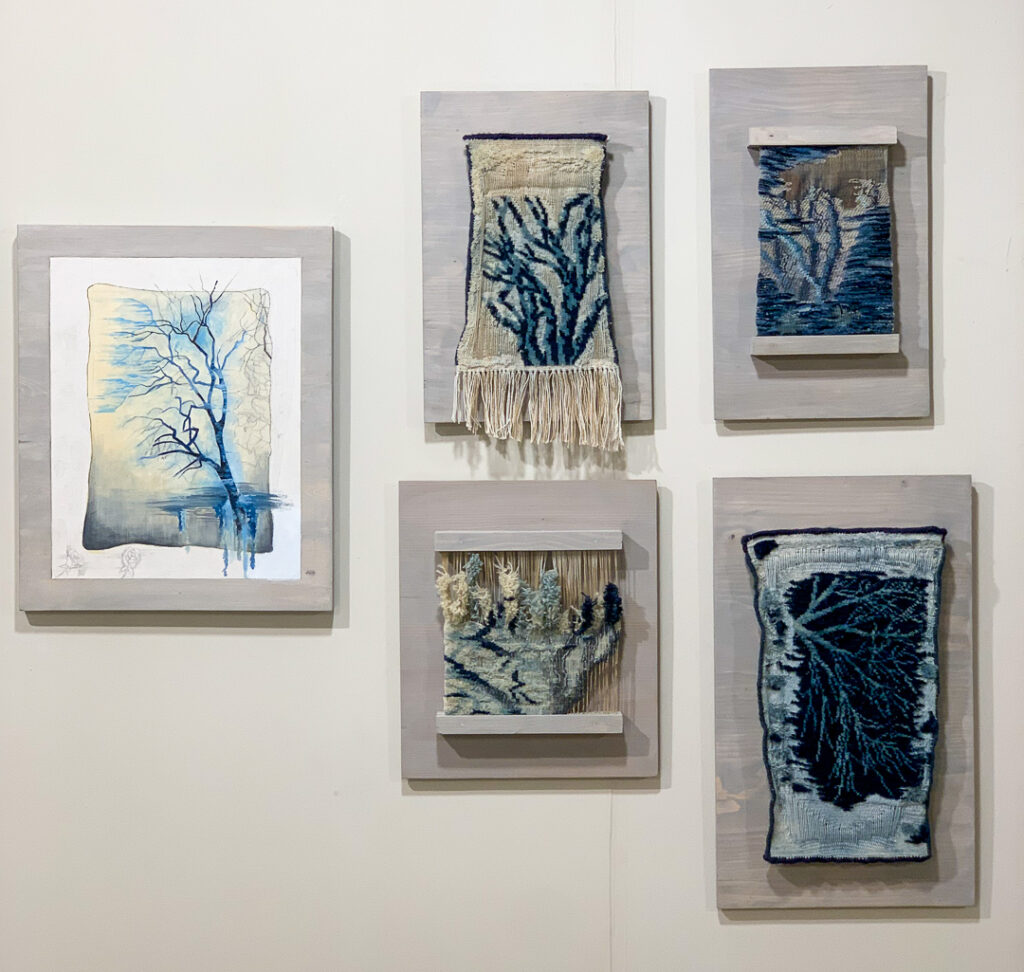

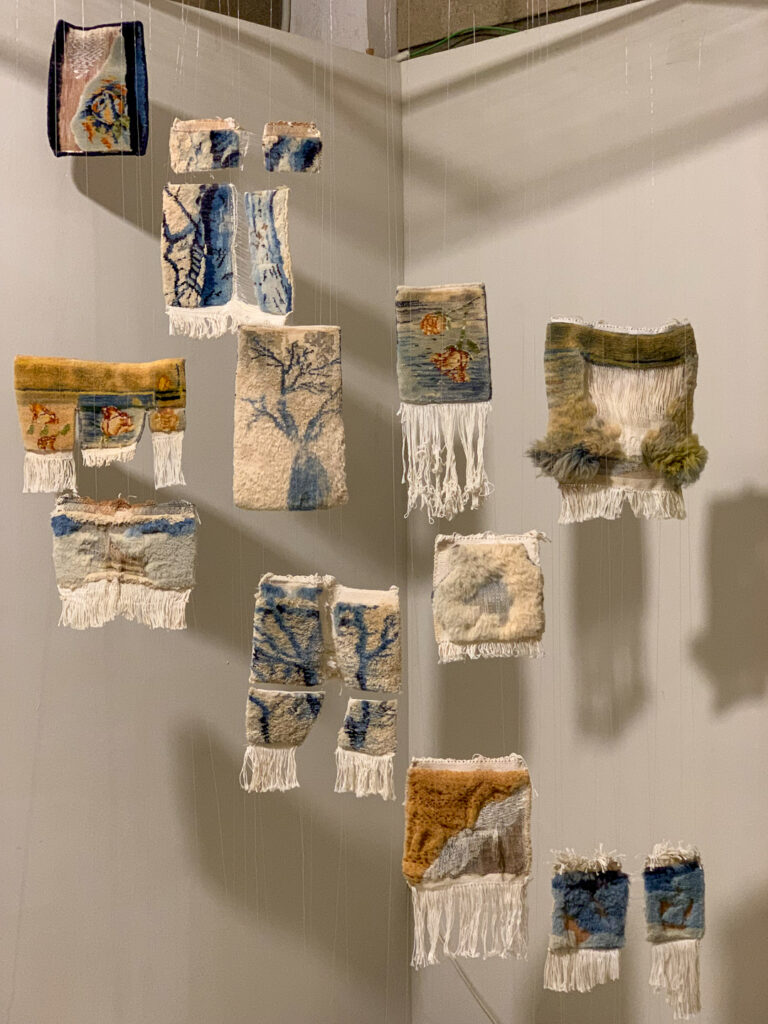
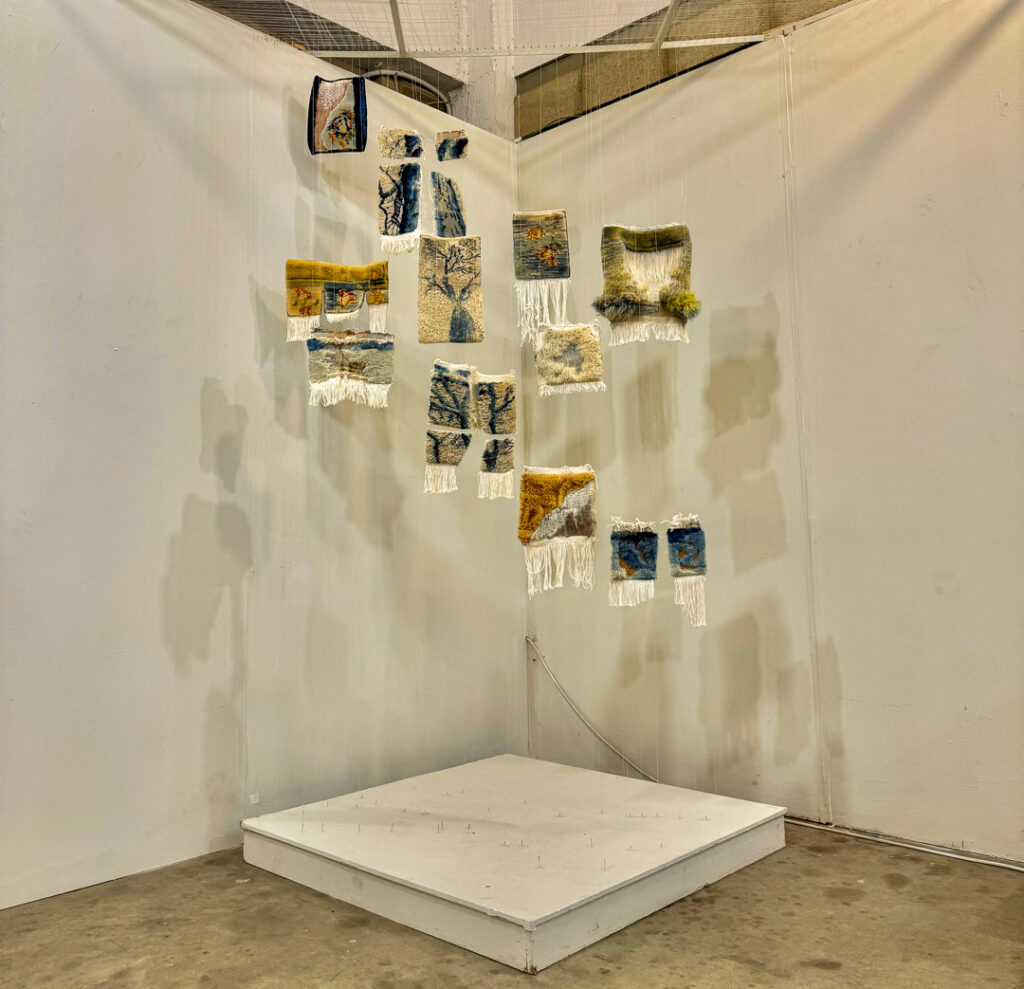

Comments
What an interesting article – Yusra’s work is fascinating. And it is an important part of preserving craft heritage too. I think Ruby Ghuznavi would be very happy to see this kind of artisan-centred work being supported in her name!